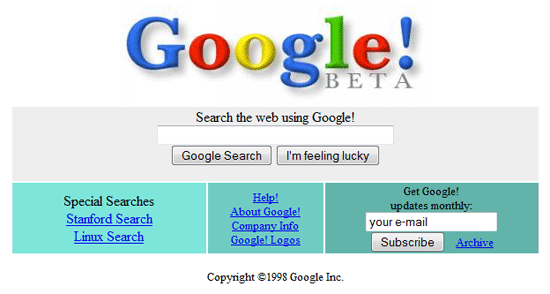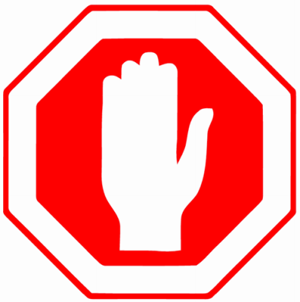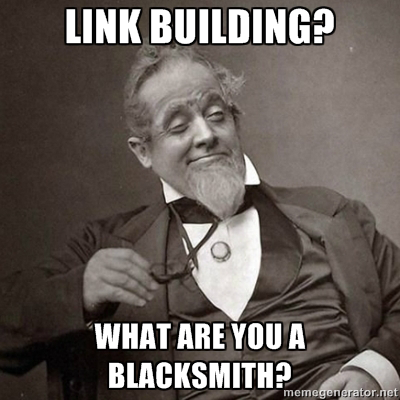SEO Myths, Tips & Terrible SEO Advice

A quick search of Google will turn up more SEO advice, tips and strategies than anyone could ever possibly read. As an SEO practitioner, I prefer to test variables and come up with facts about what works and what doesn't. It appears that not everyone believes information needs to be true or correct to share and as such, we are left with a ton of misinformation, like these 21 myths, tips and terrible SEO advice.
#1 Google will replace link signals with social signals.
"If anything, social signals will complement links, but in general, Google is not going to give up links anytime soon for a number of reasons, but most so because of the environment in which the two exist. Google treats the Web as their own domain, and they've shown that working with third parties like Twitter in the past isn't a cake walk and I doubt they'd prefer it. Not to mention social signals have been confirmed by Cutts to not be being used in the algorithm (yet), so any short-term advice here is even worse." - Jon Cooper
#2 Anchor Rich Link Buying is an Effective Method
"People saying that buying rich anchor text link works. If it is too rich it can hurt you and eventually you are going to get caught for buying links." - Neil Patel
#3 The worst link building advice I've heard is: "Write great content".
"This is a myth I actually believed at one point. I launched a site in the weight loss space and put out some absolutely awesome content that blew the competition out of the water. Five months later, I accumulated a grand total of one natural link.
That experience taught me that link building is 20 percent about content and 80 percent about promoting that content. You can have the meaning of life on your site- -- but if no one reads it -- you're not going to get any links from it." -Brian Dean
Thanks to Jon, Neil and Brian for sharing. Now, here is some of the worst advice I have heard and read, a few myths, and a few tips that will actually help you rank.
#4 Massive Submissions to Directories and Search Engines

What is this 1998? Search engines can and will find your website if it is set up and linked to properly. Submitting a site can be helpful but it is not worth the $100 some companies are charging to submit sitemaps.
Directories used to work well to boost rankings, but that was when more links equaled better rankings. Considering more than 200 ranking factors are now considered, you can see why mass submitting to directories is not going to do the trick. That being said, there are some very good directories such as Best of the Web which still offer benefit. Be selective with your directories and you will save time and money.
Speaking of 1998, anyone remember this program?

#5 High-Volume, Low-Quality Links Still Work
Again, this is not the 90s. Until recently you could get away with automated link blasts and mass blog spam commenting to gain rankings. It was always a sketchy practice but it did work. In 2014, you should avoid mass link building if you ever want to rank.
Sites such as Fiverr offer several gigs that will destroy your ranking abilities, here is just one example:
"25,0000 Blog Comment Backlinks. Everything is done by awesome software scrapebox. Various website platforms and we need only website and keyword which you want to blast. Massive Backlinks scrapebox blast!"
If you somehow manage to rank a keyword using this gig, don't quit your day job because it's not going to last long. There's a lot better ways to spend $5.
#6 Content Spinning Works
This is one of those half-truths that are rampant online. If you manually spin an article or have a really good program you can create articles that are "unique". This does not mean that they will provide any useful information to the end reader. Essentially being useless, the spun content will not be shared, will never go viral, and will not build a strong fan base for you or your brand. One unique and useful article will benefit you much more than 50 spun, junky articles any day.
#7 Tiered Links Protect Your Money Site
Again, this is another half-truth. Creating a tier around your main site can act as an on/off switch for all the links in a pyramid or link wheel. Until late 2013, tiered link building relied heavily on spinning content and blasting hundreds of thousands of spam links at tiers 2 and 3. Recently, SEOs have realized that just as the good metrics were being channeled into your money site, the bad metrics were also making it to your site. This means that you should avoid spam links on all levels of your tiered link building strategy to get the best results. Done properly, tiered link building does still work.
#8 Stop Building Links or You Will Get Penalized

Wow, stop building links? Great piece of advice, but not really though. I have noticed two recurring themes that appear when you click headlines about not building links. The first one being "stop building links and start earning them" and the second actually suggesting you do nothing for fear of penalties. The problem with the first piece of advice is that you have to build links. Making great content and sharing it with people who want to link to you if link building and it is effective; why wouldn't build them? If you think about it, this is just another way to spin the same old news to make you click and read. The concept of not doing anything for fear of failure is a 100 percent effective way to never rank a site. Try, fail, and learn, but do not stand by and hope for rankings.
#9 Make Sure to Fill in Your Keyword Meta Tags
I actually like this piece of advice as an SEO provider. If you fill in your entire list of keywords in the keyword Meta tags all I have to do is visit your site and I know exactly what keywords you are targeting, which can save me a lot of time brainstorming keyword ideas. All kidding aside, adding keywords in the keyword Meta tags does not benefit your websites rankings.
#10 Article Directories and Press Releases for SEO
Some people just can't let go of the past. Not so long ago you could use this technique to "syndicate" your content and get multiple links from a single article or press release. Great concept behind this one until Google caught on. Now you are wasting your time if you are using either for SEO only. They could still be used to get news out or even to build some authority in a niche but for SEO that aren't effective.
#11 You Only Need On-Page SEO
This tip is right in line with "write great content". While on-page SEO is very important, it is not a standalone solution as many companies would have you believe. Unless you are only trying to rank for your brand name on page needs to be supplemented by a solid link building strategy if you want to see real results.
#12 Massive Guest Posting is Awesome!
If I never heard about guest posting again it would still be too soon. Guest posting is a great way to build links. If you are posting a ton of guest posts on low-quality sites with little or no editorial oversight, you are wasting your time and hurting your ability to rank. Guest posting en masse to junk sites is nothing more than article directories re-incarnated. Spend extra time writing one good post and you will see a far greater return than if you write and submit 50 junk posts.
#13 SEO Link Building Plans
While not really advice, I am shocked at the number of companies selling one-size-fits-all marketing packages. Every website in every vertical is unique. What it takes to rank in one niche may not even come close to ranking you in another. If you run across an SEO provider bent on selling you a pre-made plan you should take a pass.
#14 Faking Social Signals
This is another of the pieces of advice that sounds good in theory. The problem with this (besides it being black hat) is the amount of time it will take. The concept is that you can create hundreds (or more) of fake social accounts so that you can share your content to fake social signals. Why not spend that time writing something really valuable or building a relationship with another business? I can almost guarantee your time will be better spent on the latter. Remember, you want to be able to publish and forget one day, fake accounts aren't going to do the trick.
#15 Keyword Stuffing in Image Tags
Let's think about this one for a minute. Does anyone really believe that Google won't notice a keyword list stuffed into every single image on your page? Adding alt text to your images is important as it allows text only readers and search bots to know what your site is about. Instead of stuffing keywords though, just add one keyword to the description of each image. On a side note, keyword stuffing won't help you in the first place and will actually hurt your site so don't do it.
#16 Google+ 1s are as valuable as Links
Social media is the sexy new addition to online marketing and social "gurus" want to maximize the influence (real or perceived) of social media. In 2013, the rumor was that +1s were improving SERP rankings. The fact is that content being shared is more likely to earn links through shares. The links being earned are the reason for better rankings, not the +1s. Here is a good guide from Hubspot on the matter.
#17 To Rank well in Local search, You Must Be Near the "Centroid" or city center.
This is simply not true. The first issue is with the definition of Centroid. The Centroid is where the push pin shows up on a map if you search a city without a specific address. Contrary to popular belief, this is not always the geographical center of town. Many SEOs claim that the closer you are to this point the easier it will be for you to rank. Local rankings rely on numerous factors just like organic search so don't waste your money on a new piece of real estate trying to rank.
#18 The More Reviews You Have, The Higher You Will Rank
This myth is very similar to the belief that whoever has the most backlinks in organic search will rank highest. Local search uses a complex algorithm just like organic search. Having reviews from diverse sources will help you rank but it is not the sole factor.
Moz put together a good blog about the top local SEO ranking factors, find it here.
#19 Inbound Links Do Not Matter for Local SEO
This one is simply not true. Inbound links do matter, so does domain authority and a ton of other factors. Local SEO is not easier either. Check Moz for a complete list on local ranking factors.
#20 Local SEO is all about Your G+ Local Listing
Again, this is not the case. Your G+ page can be a valuable addition to a local marketing campaign but it is not the end all, be all of local. You can rank your website locally without a G+ Local page. See above for a complete list of local ranking factors. If you are a G+ novice, you might want to check out my recent interview with Crystal Childs for some great G+ optimization advice.
#21 SEO is Fast, Cheap and Anyone Can Do It

Can writers not come up with any ideas other than "simple ways to" or "DIY SEO" style SEO articles? It seems that everyone who has ever read a post about SEO claims to be an expert. They take one piece of bad information and spread it like wild fire. SEO is not fast, it requires more time and effort with each algorithm update, and I have seen what happens when people try to do it without a clue. Trust me it is ugly to say the least.
Why Is There So Much Bad Information About SEO?
I think Aaron wall said it best when asked why real SEO tactics are kept underground
"It is just like people writing about social media, but giving you a half-truth about how it organically spreads rather than mentioning what they really do to seed it...and where one rats out the next while selling himself to the highest bidder." Aaron Wall - SEObook.com
When you consider the intentional misinformation combined with rapid changes in SEO, it is no wonder there is so much bad SEO advice floating around blogs, forums and from the mouths of "experts." The only way to know what really works it by testing and measuring. If you are going to do your own SEO testing variables will become second nature.
What is the worst advice you have ever heard or received about SEO? We would love to hear from you below!









